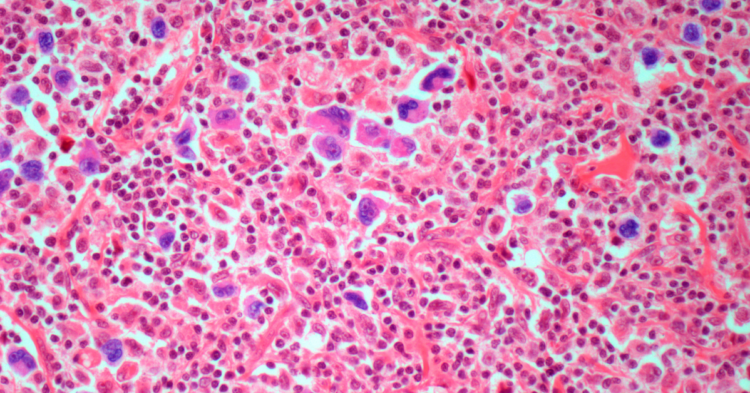If you had to name just one goal of medical science, discovering a cure for cancer just might top the list. Unfortunately, we’re not there yet. But recent developments could be the biggest breakthrough we’ve seen in years.
Will we ever have a cancer vaccine?

With a simple shot, we’re able to avoid some of the nastiest diseases of years past like polio, mumps, and measles. A similar vaccine, but for cancer, would be incredible.
Researchers are working on it.

A research team from Mount Sinai Hospital in New York has been developing a treatment that’s essentially a cancer vaccine. It’s not ready to hit the market yet, but early results have been promising.
Search and destroy.
The vaccine consists of an immune system stimulant and is injected directly into a cancerous tumor. Once in the body, it essentially teaches the immune system to find and destroy any cancerous tumors or cells.
But…how?

There are a few steps involved. First, the tumor is injected with the stimulant. This stimulant promotes dendritic cells, a type of immune cell, to come to the afflicted area.
Next comes low-dose radiotherapy.
A small amount of radiotherapy is used to treat the tumor. After this, another stimulant is injected, which activates the dendritic cells and spurs them into action. This is the last step in the treatment.
The cells team up.

After the second injection, the dendritic cells instruct white blood cells to seek cancerous cells throughout the body. From there, the white blood cells (known as T cells) destroy cancerous cells.
It’s been tested on people.

In a clinical trial, doctors tested this immune system booster on eleven separate patients with lymphoma cancer. The fact that it’s being tested on humans (rather than mice) shows that research is well past the preliminary stage.
Did it work?

Three of the eleven patients went into remission after receiving the experimental therapy. This is extremely positive news, as it means the cancer has shrunk to the point where it’s manageable.
What types of cancers could it help?

While the clinical trial only looked at patients with lymphoma, it was surprisingly successful. This has researchers hopeful that the treatment could be applied to other types of cancers, including breast cancer.
Is it truly a vaccine?

It isn’t, because it’s used to treat an existing condition, rather than prevent its development in the first place. Still, it functions similarly to a vaccine because it spurs the immune system to fight the ailment.
A cancer vaccine has been sought for years.

For decades, scientists and doctors have tried to create a true cancer vaccine. Earlier attempts were all unsuccessful, but more recent research into immunotherapy — as well as immune-boosting therapies like this one — have reignited hope.
What’s next?

The road from concept to clinical trial to FDA approval is a long and winding one, and it’s still early on for this project. After all, only eleven people have tried this therapy.
It’s cleared some hurdles already.

Experimental therapies need to undergo a number of steps before they can even be tested on humans. So even though this therapy isn’t ready to hit the market, it’s advanced far enough to be tested on humans.
It could be a game-changer.
Rather than something like radiotherapy, immunotherapy actually gives the body the boosters and tools it needs to fight nasty diseases like cancer. If research continues to show promise, we could see this as a viable option in a few years.
What do you think?

Just about everyone will be affected by cancer at some point, whether it impacts them directly or a family member. The hunt for a cure continues. Let us know what you think in the comments section!
h/t Daily Mail















































